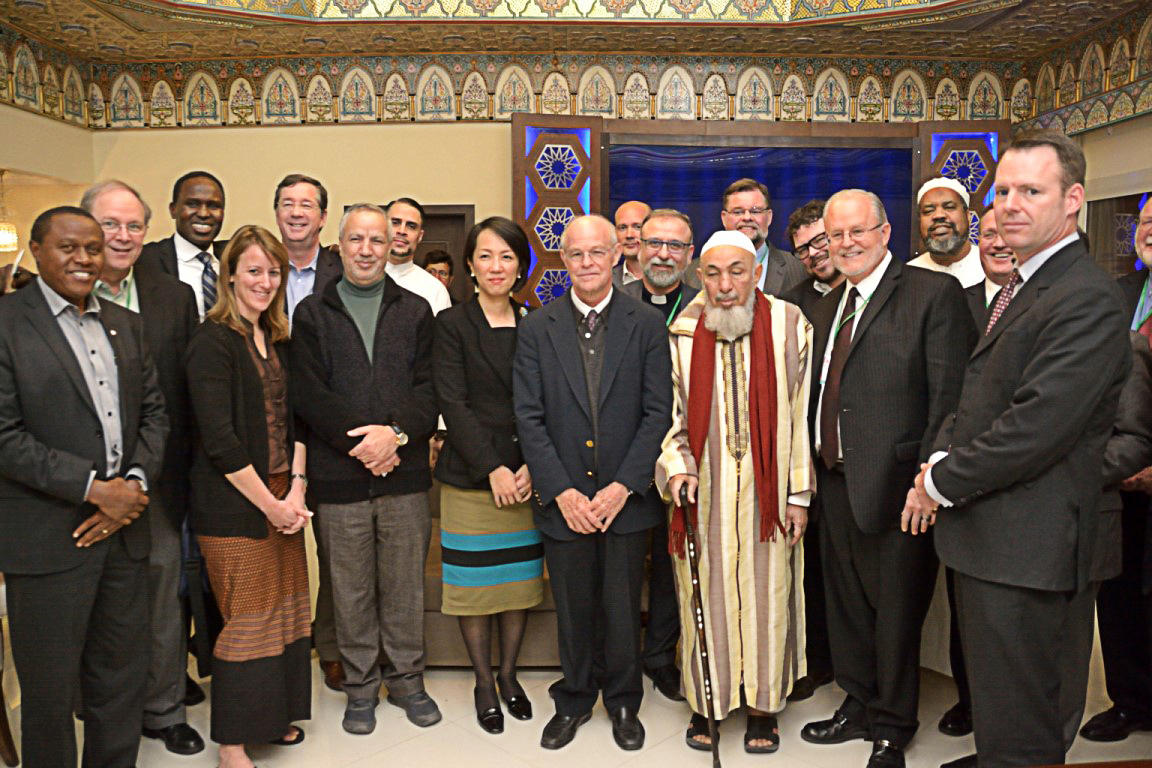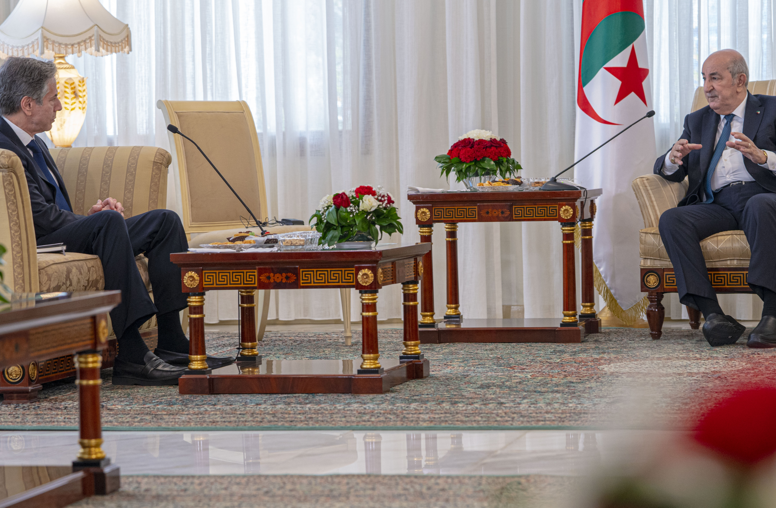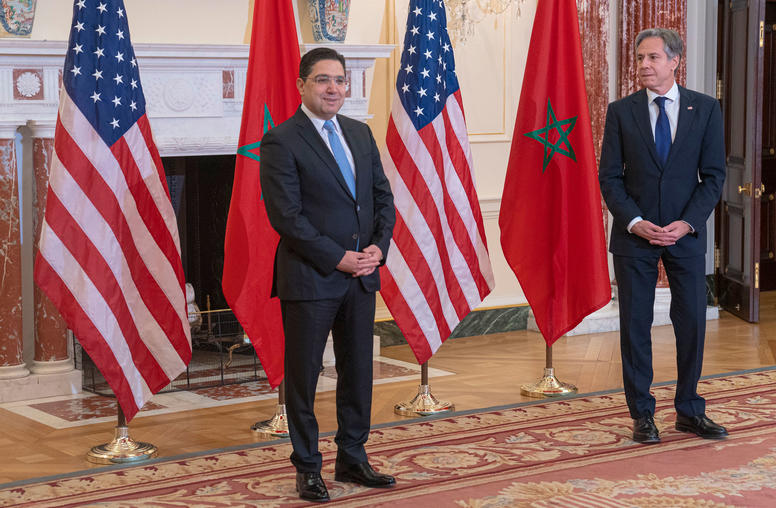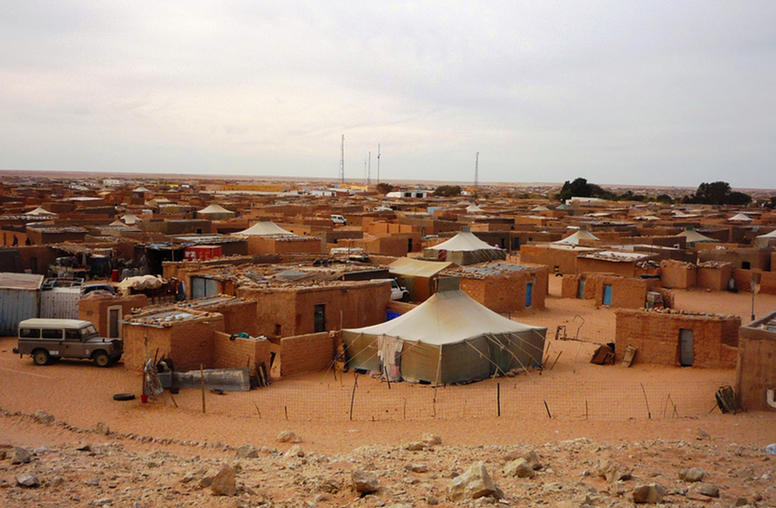Q&A: Muslim Scholars Pledge Support for Religious Minorities
On the Issues with Susan Hayward
Muslim scholars and intellectuals from more than 120 countries issued a new pledge of support last week for the protection and freedom of religious minorities in Muslim-majority communities. Susan Hayward, USIP’s director of religion and inclusive societies and an ordained minister in the United Church of Christ, attended the three-day conference in Marrakesh, Morocco, as a supporter, and explains the significance of the pronouncement.

The “Marrakesh Declaration and Call to Action,” issued on Jan. 27, 2016, by the gathering of mostly Sunni Muslims but also some Shia, represents an effort to respond to the rise of extremist groups in the Muslim world. The militants have targeted minority groups, among others, with violence, rape and sexual enslavement, forced conversion, and destruction of holy sites. The statement appeals for going beyond simple tolerance to affirmative cooperation that confers “full protection for the rights and liberties to all religious groups.” It also calls for concrete actions to achieve this goal.
What is the significance of this declaration?
At its most basic level, the Marrakesh gathering and concluding call to action serves as an acknowledgement among senior religious and political figures of a serious human rights problem that needs to be addressed. In that sense, it’s an important step in corralling a concerted effort across the Muslim world to respond to the problems of extremist violence, political marginalization and prejudice targeting minority communities. At a time when hostilities between religions appear ascendant around the world, the gathering elicits hope for a global effort to embrace diversity and equality as an act of religious faith.
The legal framework that inspired the declaration was crafted by the renowned legal expert Sheikh Abdullah bin Bayyah. He drew from early Islamic sources, particularly the Charter of Medina, and connected them with international human rights law to present a model of equal, contractual citizenship as an Islamic principle. So the declaration also is a significant illustration of how religious sources can be drawn on to support and entrench human rights norms, and so challenges those who claim Islam is incompatible with modern international law. As noted by Azizah al-Hibri, who is the founder of the civic organization KARAMAH: Muslim Women Lawyers for Human Rights, the Qur’an advances the idea that “religious freedom is a sign of political maturity.”
There have been similar efforts in the past, such as the 2004 Amman Message, the 2007 A Common Word Between Us and You, or the 2010 Mardin Conference. What makes this effort different?
The Marrakesh gathering and declaration focused specifically on the adoption of an Islamic legal framework for citizenship, guaranteeing equal rights, protection and religious freedom.
But perhaps more crucially, the crisis wrought by extremist ideology and violence has deepened in recent years. So that has added motivation for Muslim scholars and activists who resent how their religion has been hijacked, and who want urgently to advance peace. As the well-known American Sheikh Hamza Yusuf said in an interview before the gathering, "We want to counter the idea that Muslims and non-Muslims can’t live together. This is not who we are or who we want to be.”
How effective are these sorts of endeavors?
Gatherings and statements such as these have been and continue to be significant initiatives within the Muslim world to address modern problems and the root causes of conflict and violence. But these platforms and declarations have sometimes been criticized as elitist endeavors that have failed to reach the grassroots to significantly shape public attitudes, or to effect tangible change. The hope of the Marrakesh conference organizers is that this declaration will yield such transformation.
What’s the plan for following up on this declaration?
After the conference concluded, a number of clergy from faiths other than Islam met with Sheikh bin Bayyah. I asked him what he planned to do in order to ensure the call to action was heeded. He spoke about plans to advocate directly with governments, and to convene Islamic scholars to introduce the legal framework widely. These efforts are significant, given Sheikh bin Bayyah’s stature and influence in the Sunni Muslim world. However, he also acknowledged that, to move forward, he would need the partnership of peacebuilding activists and organizations better-situated and skilled to mobilize effective grassroots action.
How did this conference come about?
The gathering had been in the works for four years. It began during the Arab Spring political transitions, when Sheikh bin Bayyah sought to rally support for greater minority representation in governance in majority Muslim states. With the rise of violent extremist groups that threatened the very existence of minorities in the Muslim world, his focus increasingly turned to defending minority rights and freedoms. A 2013 gathering of scholars in Tunisia by Sheikh bin Bayyah to this end fed into its constitution-drafting process.
Sheikh bin Bayyah does this work through his Forum for Promoting Peace in Muslim Societies, an organization USIP has worked with in the past.
Considering the desperate plight of religious minorities in certain areas that are majority Muslim, such as in Iraq and Syria, what was the mood at the conference and how was that expressed?
The mood was serious, but convivial and certainly aspirational. Representatives from minority communities in Iraq and elsewhere, including Yazidi, Sabean-Mandean, Ahmadiyya, Christian and Jewish highlighted the urgency of the situation. Hadi Baba Sheikh , an Iraqi Yazidi speaker, recounted the thousands killed and forced into sexual enslavement, and ancient holy sites that have been destroyed.
Many, Muslim and non-Muslim, pleaded that the declaration lead to action. Daneel Abdel Khaled, a Druze, reminded participants that actions speak louder than words. Palestinian Bishop Munib Younan expressed his dream for societies in which all are treated with equal respect, no matter their “belief, gender or dress code.” Several other speakers reiterated the call that the vision of “equal citizenship” include gender equality, especially given efforts by extremist groups to turn back women’s rights.
Were there any points of disagreement?
There was some disagreement among participants about whether to include in the declaration support for laws against defamation of religion. The critics of this approach argued it infringed on laws protecting free expression, and pointed to ways in which so-called “blasphemy laws” have often been used to persecute religious minorities. In the end, the declaration called on religious representatives to confront speech that promotes hatred and bigotry, or that denigrates “what people hold sacred.”
What were some of the other memorable moments during the conference?
On the first day, when presenting his legal framework, Sheikh bin Bayyah described extremist actors as “uneducated” and “ignorant fools” who distort Islam. He called on Islamic scholars to “descend from their ivory towers” in order to “expound sound understandings and a correct approach, as well as to answer questions regarding the complex contemporary conditions.” This was an important wake-up call to scholars, recognizing the role they must be playing at this critical moment.
Several of the conference speakers raised concerns about rising Islamophobia around the world, and legal restrictions placed on Muslim citizens where they are minorities. As noted by one Muslim speaker, "We can't ask for rights for Muslims where they're a minority if we don't protect rights of minorities where we are majority."



